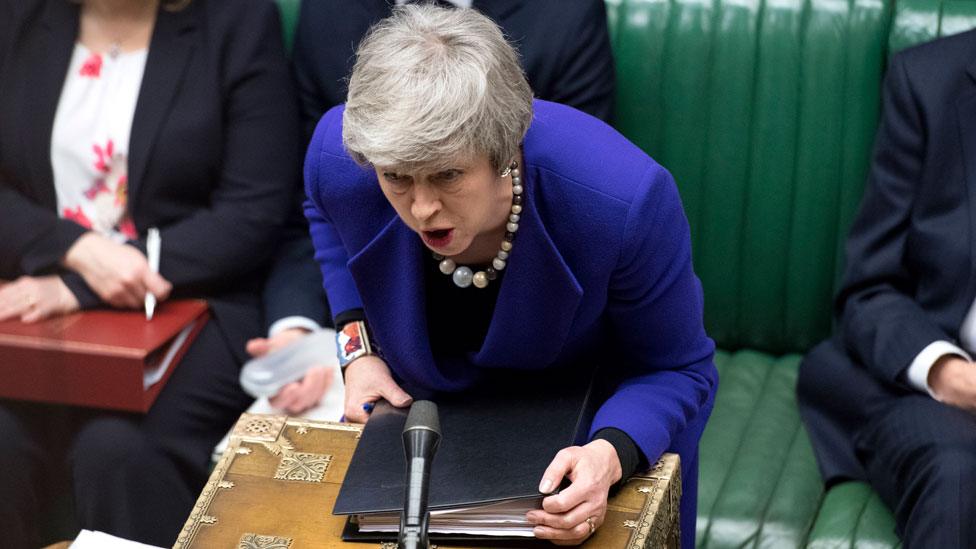Brexit: A staring match of one against 27
- Published

There will be a hunt for a new idea.
Some magic new solution that might - maybe, possibly - provide a sudden surprise solution to Brexit's conundrums, in the way exhausted pilgrims might fall jubilantly on the Holy grail proclaiming, at last, that its jewels are beyond compare and a world changing treasure is now in their heroic clutches.
And yes, it is absolutely the case that different technical solutions will be explored again - whether they be ways of carving out potential technological solutions to managing the Irish border or additional paragraphs of legal language that could be constructed to suit all sides.
And, of course, in the next fortnight the government - and everyone in Westminster and in Brussels - will spend a lot of energy trying to work out which other possible ways of fixing the acute problem with the backstop could be done.
Fundamentally though, our politicians have been staring at the same problem for more than two years.
I'm reminded of how many months ago, during one of the other frenzies over how to "solve" the border issue, one official told me that, essentially, all that could really be done was to put the same words in a different order.
The next fortnight's efforts will be a bit more complex than that, but they may prove the old adage: "There is no such thing as an original idea."
Different ways of moving different promises or verbiage around, but a bold brand new solution no one's already thought of? Don't hold your breath.
'The power of time'
But the facts of the situation in their most simple way are the same.
The UK is on course to leave the EU. That means the border on the island of Ireland becomes a border between a separate country and an enormous free trade area.
Everyone promises they don't want to have anything like a traditional border - but no one can agree on how to avoid that.
There is only one thing now that is certain to change, and that is the power of time.
The hope may be misplaced, but the hope nonetheless on the UK side is that as the clock ticks down with no solution, eventually, the fear of the consequences of the UK leaving without a deal will concentrate minds.
And the pressure of the approach of a deadline could in turn shift the politics.
Because it is the desire of EU leaders to avoid the worst that will either salvage Theresa May's deal, or not.
Her political drive to get this over the line will determine how radical or tough she is prepared to be.
And for different EU leaders, their own calculations - which are, of course, driven by politics in their home countries, as well as the role of the EU - will shape whether they are willing to flex at all.
A final staring match
Technical and legal rules and agreements are, of course, vitally important in all of this.
But if there was an easy solution in policy and precedent, it perhaps would have been found by now.
It feels like we are now entering into a final staring match, where politics - not policy - will decide who has to look away.
The problem, as ever, for Theresa May is that she is one against 27 others.